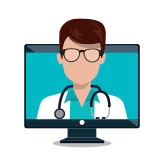Apply for Jobs That Are Located At an Urgent Care Center
At WellCare Urgent Care Center in Grand Rapids, Mich., we hire a variety of medical professionals to provide compassionate and efficient care for our patients. We make it easy to apply for a job with an online process that requires your contact information, but you can also attach a resume, cover letter, and copies of your licensing information to help us arrange an interview.
We Provide Medical Services to All Age Groups
Our urgent care center offers medical services to patients of all ages with conveniently scheduled appointments or walk-in scheduling. Some of our patients are seeking routine care with physical examinations for playing sports, attending camp, or enrolling in school. We offer immunizations to prevent childhood diseases along with adult conditions such as pneumonia or shingles.
We Offer a Versatile Working Environment
Patients can visit us for problems such as strep throat, lacerations, muscle sprains, and pregnancy tests. When you work for us, you should have the ability to cope with a daily turnover of patients who may need to have an abscess drained or an arm X-rayed. People of all ages come in for help with a variety of medical concerns that we should be prepared to care for.
Types of Health Care Professionals Working for Us
Our urgent care center hires several types of health care professionals, including:
-
- Physicians and Advanced Practitioners – providing a wide variety of patient care services
- Radiology technicians – collecting X-rays and reading the X-rays
- Medical Assistants – assisting registered nurses and physicians
If you are interested in working at WellCare Urgent Care, then apply on our website, or you can contact us with a telephone call. When we are interested in hiring you, we will contact you with an email or a telephone call to arrange an interview. Make sure to have your educational and licensing documents with you along with the names and contact information of at least three professional references.



